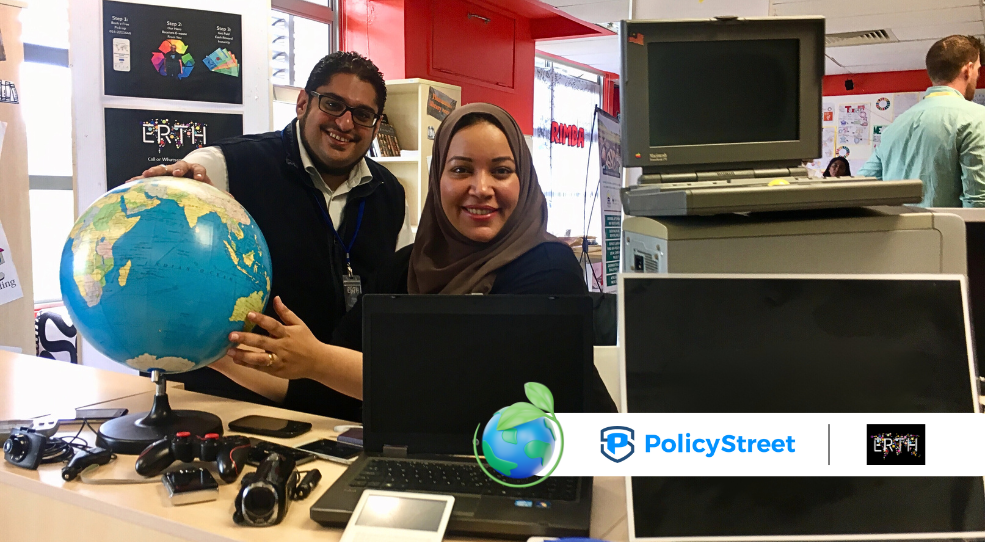Understanding Types of Investment in Malaysia
Key Points
- Be well-prepared before investing, such as having sufficient funds and knowledge.
- Understanding and choosing the most suitable investment for yourself.
- Feel free to ask for help if you ever need investment advice.
The stock market is full of temptations for young investors. They dream about quick profit, but it’s essential to know that investing demands stability and patience before you can reap the rewards in this business venture. Especially if there are risks involved, like losing your money!
Before starting to invest, having an emergency fund of at least three to six months’ salary is essential. You should also ensure that you can take care of your usual monthly expenses and have enough left over for anything unexpected. Click here if you need to understand the investment.
The word “investment” has many meanings, but in essence, it refers to any asset created to allow money to grow. To choose a suitable investment, you must know what kind of funds they are and how these investments work in Malaysia.
Types of investment in Malaysia
There are a few types of investment in Malaysia that you should know before choosing one to invest in.
- Fixed deposit
- Unit trust
- Investment-Linked Insurance Policies (ILPs) / Insurance
- Stocks and shares
- Gold
- Cryptocurrency
- Private Retirement Scheme (PRS)
- Robo advisors
- Real estate
We are going to talk more about each investment below.
Fixed deposit
Commonly known as FD in Malaysia, a fixed deposit has been considered one of the safest options for beginners. This is because you’ll be guaranteed a return if your money remains invested in this type and term.
When you withdraw your fixed deposit before it matures, there is always the chance that interest rates might decrease and any penalties could be imposed.
It is recommended for those who want an easy and low-risk investing option. A fixed deposit may be your best bet. Check here for more details on fixed deposits.
Pros
- Minimum risk
- Guaranteed return
- Easy to use
Cons
- Low interest rate
- Withdrawal before maturity might have a penalty
Unit trust
Unit trusts are one of the most popular investment options for investors looking to diversify their portfolios without having too much trouble. These funds hold assets, with profits that can be given directly back into your pocket instead of reinvestment! Therefore, unit trusts are suitable for those who want to invest long-term and stable.
The unit trust is ideal for investors to invest in different assets and gain exposure. With multiple investors contributing their cash, it becomes more accessible than ever to manage your money and diversify its risks by investing across many industries or market sectors with one fund!
To lower the cost, you can opt to manage your own funds. Otherwise, you’ll have to pay your agent’s management and transaction fees if you have one.
Pros
- Portfolio diversification
- Low starting capital
- Multiple unit trust to choose
Cons
- Fees can add up
- Harder to choose if investing individually
- It may not be as liquid as other investments
Investment-Linked Insurance Policies (ILPs)
ILPs combine life insurance and investment features to provide convenience for financial planners who want an all-inclusive package. ILPs can provide a death benefit or, if included, total and permanent disability (TPD). The higher sum assured is combined with units in the sub-fund at that point.
The funds you invest in are entirely under your control. You can withdraw any amount at any time if needed! As you age, your insurance costs may increase. Instead of increasing the premium, the insurance company will deduct the money from your investment account.
Getting life coverage and starting to invest can both be done in one shot, thanks to ILPs. However, if your concern is insurance coverage only, this might not be the most suitable plan for you.
Pros
- Get both coverage and investment in one sum
- It is flexible to withdraw funds
Cons
- Higher premiums and charges
- Returns are not guaranteed
Stocks and shares
Stockholders are partial owners of the company. A stock represents its share in its earnings and assets, so they get a cut when things go well for an organization.
This is one of the higher-risk investments. Investing in the stock market is a great way to make money, but it comes with some risks. Before investing your hard-earned cash into stocks and shares, you should do research on the stock market.
If you’re a beginner and have no investment knowledge, don’t get started with stocks immediately. However, if you are willing to put in the time researching potential companies that interest YOU, the stock market might provide you with tremendous rewarding investment.
Pros
- Higher potential return
- Buy and trade easily
- Income from dividends
Cons
- Volatile in a short time
- Require much research and analyze
- High risk
Gold investment
Gold investment accounts are a lucrative way to diversify your portfolio without having any physical assets. Gold has benefited those who want stability and diversity within their investments while maintaining an overall positive outlook on life through diversification with other product types like stocks or bonds.
Gold is an excellent investment for those with low-risk appetites and moderate cash reserves with some long-term stability. You can understand more about gold investment here.
Pros
- Stable long-term investment
- Easy to buy
- Able to receive as cash or gold
Cons
- Does not generate interest
- Do not expect a quick return
Cryptocurrency
Cryptocurrencies are a revolutionary way to transfer money without relying on banks or other third parties. They’re also entirely secure and decentralized, meaning there’s no actual coin, just software (crypto wallet) stored on computers worldwide!
In short, cryptocurrency is a digital currency powered by blockchain technology. Some popular cryptocurrencies are Bitcoin, Ethereum, Ripple, Litecoin etc.
Cryptocurrency is a risky investment, as the prices may fluctuate within hours. The digital world is complex and fast-paced, so your risk appetite needs to be high if you plan on getting into cryptocurrency. You need to know about all of the digital world trade movements.
Pros
- Potentially higher return
- Easier transactions globally
- Blockchain networks are secure
Cons
- High fluctuation
- Require knowledge of the cryptocurrency market
Private Retirement Scheme (PRS)
Helping you save more for your retirement, the Private Retirement Scheme (PRS) is a voluntary long-term savings and investment scheme.
The future of your money is in safe hands with the Private Retirement Scheme (PRS). You can invest according to how much risk you’re willing to take, and it’s regulated by the Security Commission!
If you are planning for retirement and would not need to withdraw your investments before that, then PRS is a good investment.
Pros
- Easy investments
- Tax incentive
- Designed for retirement
Cons
- Withdraw before age 55 will result in a tax penalty
Robo advisors
Robo advisors are digital financial advisors who offer personalized financial advice and manage your investments with minimal human intervention. These robo-advisors will typically manage your investments for you.
Some of the famous platforms in Malaysia, including StashAway and MYTHEO, have become popular among investors. The low minimum investment amounts and easy withdrawals make these platforms perfect for those who want to invest but don’t have a large amount available.
Pros
- Low starting investment fee
- Diversification of portfolio
- Passive investing
Cons
- Won’t be able to control investing method
- Limited customization
Real estate
Real estate investing is a business strategy that some people use to make money. It’s not just about buying and flipping houses, though those are part of it too! In essence, real estate investors buy any property with the goal in mind for themself. They’re looking at generating income from its sale rather than using this as their primary residence.
This can be any land or building that is usually immovable but transferable. No matter how big or small the property, real estate will always generate more than enough returns for what it costs!
Pros
- Hedge against inflation
- Tax benefits
- Value appreciation
Cons
- High maintenance and management
- Market is not efficiently allocated
- Require huge amounts of money to invest
Verdict
Always research before investing money, and don’t be afraid to ask for help if you need it. Make sure that any opportunity sounds too good to be true, and should do more research on it. If done right, the long run will reward those who take risks with investment opportunities.
Investing requires time and knowledge. The best thing you can do is take time and think things through before making a decision. Remember, don’t rush into anything just because some so-called ‘investment gurus or master’ tells you to buy. You might regret that.



